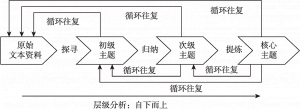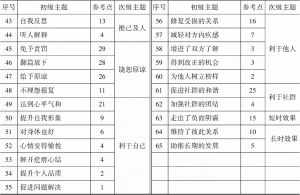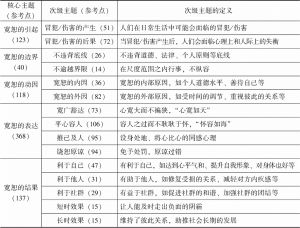论文
社区居民宽恕内涵的质性探索
摘要
宽恕是一个复杂的心理和行为现象。本研究从社区居民生活实际出发,通过质性研究对19名社区居民宽恕内涵进行了开放式主题访谈。经过主题分析,归纳提炼出了社区居民宽恕内涵的65项初级主题,15项次级主题,5项核心主题,即宽恕的引起、宽恕的边界、宽恕的动因、宽恕的表达以及宽恕的结果,提供了一个解释社区居民宽恕内涵的理论框架。社区居民宽恕内涵体现了文化传承性与时代发展性,未来研究可从其他角度入手揭示其更丰富的内容。
检索正文关键字
论文目录
- 一 问题提出
-
二 研究方法
- (一)研究对象
- (二)研究程序
- (三)资料转录
- (四)资料分析:主题分析
-
三 结果与分析
- (一)宽恕主题的分布与构成
- (二)宽恕主题的内容与阐释
- 1.宽恕的引起:冒犯/伤害的产生及后果
- 2.宽恕的边界:底线与界限
- 3.宽恕的动因:内因与外因
- 4.宽恕的表达:宽与恕的结合
- 5.宽恕的结果:场域视角和时程视角
-
四 几个值得再思考的问题
- (一)社区居民宽恕内涵之文化性和时代性
- (二)对社区居民宽恕内涵的系统性思考
- (三)本次访谈资料收集与分析的有限合理性
- (四)本次研究的意义与未来展望
相关文献
查看更多>>>






